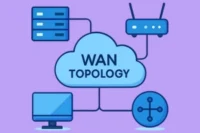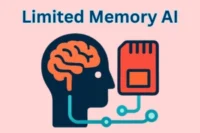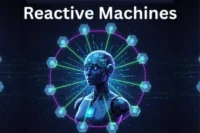10 Disadvantages of AI: What You Should Know About Artificial Intelligence
Published: 21 Sep 2025
Do you know that computers can think and learn like humans? This is called artificial intelligence (AI). AI can help us in many ways, such as saving time and making it easy to work hard. However, not everything is good with AI. Sometimes it can remove jobs that people need. A lot of money can be earned and invested to drive it. AI can also make mistakes if it learns the wrong things.
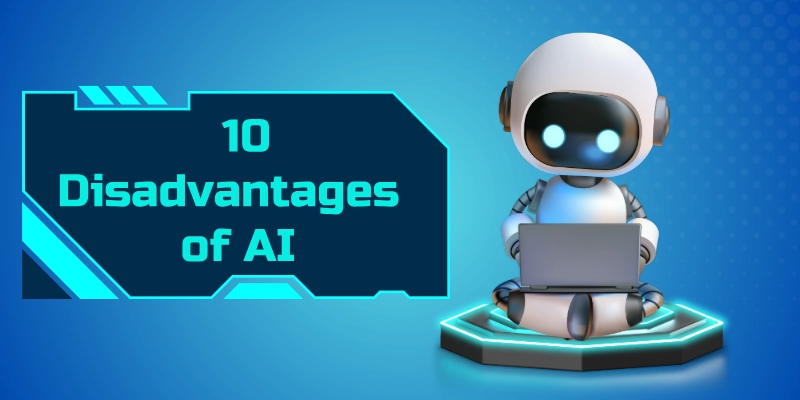
This is why it is important to know the 10 disadvantages of AI, so that we can use it safely and make smart choices in the future.
10 Disadvantages of AI
Artificial intelligence (AI) means machines that can think and learn as humans. This can help us in many ways, but it also has problems that we should know. Here is the list of 10 disadvantages of AI explained in simple words.
- Job Loss
- High Cost
- No Human Feelings
- Privacy Risk
- Can Make Mistakes
- Can Be Unfair
- Too Much Dependence
- Hard to Fix
- Security Issues
- Environmental Impact
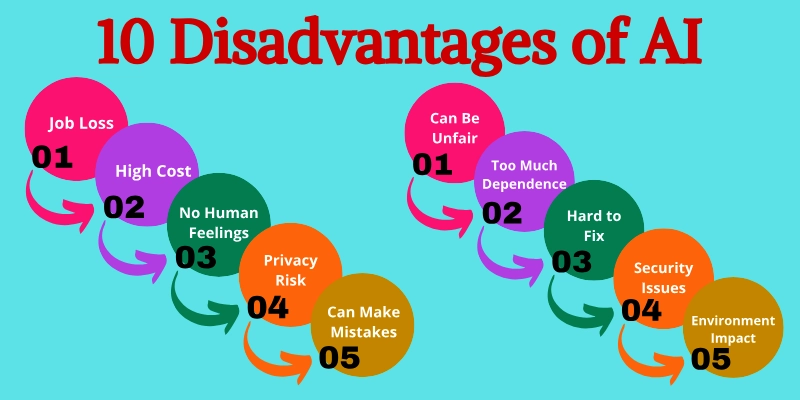
Without wasting time, let’s get into the article and discuss the 10 disadvantages of AI one by one.
1. Job Loss
AI can do many things that people used to do. This means that some workers may lose their work and revenue. When machines make simple features, people need to learn new skills to stay employed. If they cannot learn on time,hey may face long gaps without work and worry about the future.
- Robots can work in factories instead of humans.
- Can write a computer report or check the papers.
- Some shops use machines instead of cashiers.
- People may need to learn new skills.
- Families may lose income if jobs disappear.
- It is difficult for any worker to find new work.
- fewer jobs for simple tasks.
- People may worry about the future.
2. High costs
It is very expensive to make and use AI. Companies have to spend a lot of money on producing machines and keeping them going. Small businesses may not be able to bear these costs, so only large companies can use the best AI. This makes it difficult for everyone to get the same benefit.
- Computers and robots are expensive to make.
- Good software needs many experts.
- Companies spend money on repair.
- New equipment requires training for workers.
- The cost of keeping AI safe is high.
- Only large companies can buy the best AI.
- Updates and changes cost extra.
- Small businesses may not keep up.
3. No human feelings
AI cannot feel feelings like humans. It does not understand goodness, love or sadness. Talking to AI can feel cold, as it just follows rules and data. This makes it difficult for AI to relax people or show real care.
- It can’t feel happy or sad.
- Cannot relax, someone is upset.
- Doesn’t understand jokes or kindness.
- Only follows rules and data.
- Can’t care about people’s problems.
- The sound can answer that sound cold.
- Cannot show real sympathy.
- People can feel lonely while talking.
4. Privacy Risk
AI often requires personal information to function effectively. If this information is not kept safe, it may be stolen or abused. Hackers or bad people can use this data to harm others. Protecting privacy is a major challenge.
- Hackers can steal personal details.
- Sites can track what you do.
- Your photos or chat can be shared.
- People may lose their personal information.
- Data can be used without asking.
- Passwords can be stolen.
- Bad people can abuse your data.
- Everything is difficult to keep safe online.
5. Can make mistakes
AI is smart, but not right. It depends on the data and instructions as it is provided. If the data is incorrect or there is an error in the system, AI can make big mistakes. These mistakes can waste time and money.
- Words can sound wrong in voice commands.
- Can give the wrong advice.
- A search can show false results.
- Robots can stop working or close.
- Incorrect data can confuse AI.
- A small mistake can cause major problems.
- Errors can cost money or time.
- People can follow wrong instructions.
6. Can Be Unfair
AI learns from past data. If that data is unfair or biased, the AI will copy those mistakes. This can lead to unfair decisions that hurt some groups of people. Checking every hidden bias is very hard.
- May favor one group over another.
- Hiring tools might be chosen incorrectly.
- May give biased test results.
- Can copy mistakes from old data.
- Some people may feel left out.
- Unfair results hurt trust.
- Hard to check every hidden bias.
- People may think it is fair when it is not.
7. Too Much Dependence
People may start to depend on AI too much. This can make them lazy and less able to solve problems themselves. If AI stops working, many may not remember how to do tasks on their own.
- Students can use AI instead of learning.
- Workers can stop thinking on their own.
- People can forget basic math.
- Creativity can be weak.
- It is difficult to work without AI’s help.
- People get lazy when tasks are easy.
- Memory skills can fade.
- Problem-solving skills can be reduced.
8. Hard to fix
When the AI systems are broken, it is not easy to fix them. Only trained experts can repair them, and it costs time and money. Ordinary people cannot fix these systems, so it can be a delay.
- Experts are needed to understand problems.
- A lot of money is spent on fixing.
- Updates can take a long time.
- Some errors are difficult to find.
- Ordinary people can’t repair it.
- Machines may require special parts.
- Systems can stop working suddenly.
- It takes time to train new employees to fix this.
9. Security issues
Hackers can attack the AI system and cause damage. They can steal important data or change how AI works. These attacks can stop services and cause people to lose trust in the services.
- Hackers can change how AI works.
- Bad people can steal secret schemes.
- Cars can be hacked to mislead AI.
- The virus can damage the system.
- Stolen data can be sold.
- Attacks can stop services.
- Companies can lose money.
- Users may lose confidence in AI.
10. Environmental impact
AI requires a lot of power and material. Running large computers and servers uses too much power and makes a waste. It can pollute the air and water over time and damage nature.
- The big server requires a lot of power.
- Power plants make more pollution.
- Heat the heat area from the server.
- The building machine uses many materials.
- When machines are old, they are e-waste hawk.
- More energy consumption increases the bills.
- Contaminated air can damage health.
Tips or Advice
Using AI can be very helpful, but it is important to be careful. These tips will help you stay safe and smartly use AI.
- Always check AI answers yourself. Don’t believe everything it says.
- Protect your personal information. Protect passwords and important information.
- Use AI as a helper, not a full replacement for people. Make your own decisions too.
- Learn new skills so you don’t depend on AI.
- Take a break from AI and technology to keep you healthy.
- Think carefully before following AI advice. Make sure it makes sense
- Keep practicing your own problem-solving and math skills.
- Teach children to use AI safely and responsibly.
- Be aware that AI can make mistakes; double-check important results.
- Stay informed about how AI works and its risks to make smart choices.
Conclusion
Therefore, in this article, we have covered 10 disadvantages of AI in detail. AI is very useful, but it also has many problems, which we should know about, such as loss of work, errors, and privacy risk. My recommendation is to use AI carefully, check the answers, and never trust it. By understanding these disadvantages, we can be safe, protect our data, and still enjoy the benefits of AI.
Always remember that AI is a tool to help us; we do not need to replace it. Continue to learn, pay attention, and use AI with care to make your life easier and smarter!
FAQs
Here are some common FAQs about the 10 drawbacks of AI to help you understand them better.
AI stands for Artificial Intelligence. It means machines or computers can think, learn, and make decisions like humans. For example, AI can help in phones, video games, cars, or even in hospitals. AI can make work faster, but it can also make mistakes if not used carefully.
Yes, AI can do jobs that humans used to do. For example, robots can work in factories, and computers can check reports. This can make some people lose work if they do not learn new skills. People may need to train for different jobs or learn how to use AI safely.
Yes, AI can cost a lot of money. Making robots or special software is not cheap. Only big companies can often afford the newest AI tools. Small businesses may not have enough money to use AI, so they may fall behind.
No, AI cannot feel happy, sad, or caring. It only follows rules and instructions. For example, a robot cannot comfort someone when they are upset. Talking to AI may feel cold because it cannot understand feelings like humans do.
Yes, AI is smart but not perfect. For example, a voice assistant may hear the wrong words and do the wrong task. AI can also give wrong information if the data it uses is wrong. That’s why it is important to double-check AI answers.
No, AI can be unfair sometimes. If it learns from biased or wrong information, it may favor some people over others. For example, an AI tool used for hiring might choose some people unfairly. Checking AI decisions carefully is very important.
Yes, if people rely too much on AI, they may forget to think and solve problems on their own. For example, students may use AI to do homework without learning. It is important to use AI as a helper, not a replacement for your own skills.
Yes, AI systems can be hard to repair. When something breaks, only experts can fix it. Fixing can take a lot of money and time. Ordinary people cannot repair most AI machines or software.
Yes, hackers can attack AI systems. They may steal private information, change how AI works, or stop it from running. For example, a hacked AI car system can be dangerous. This is why strong safety and security measures are very important.
Yes, AI machines use a lot of electricity and materials. Big servers and robots need energy, which can create pollution. Building and discarding old AI machines also produces waste. Using AI carefully can help reduce harm to nature.

- Be Respectful
- Stay Relevant
- Stay Positive
- True Feedback
- Encourage Discussion
- Avoid Spamming
- No Fake News
- Don't Copy-Paste
- No Personal Attacks

- Be Respectful
- Stay Relevant
- Stay Positive
- True Feedback
- Encourage Discussion
- Avoid Spamming
- No Fake News
- Don't Copy-Paste
- No Personal Attacks


